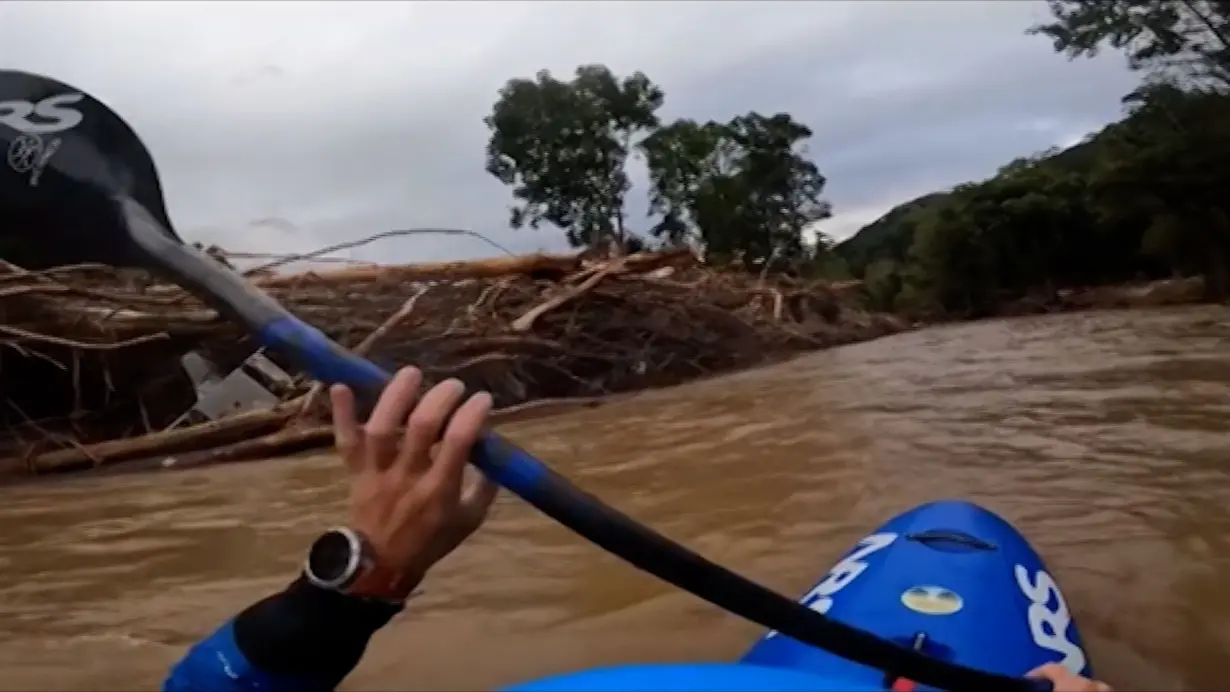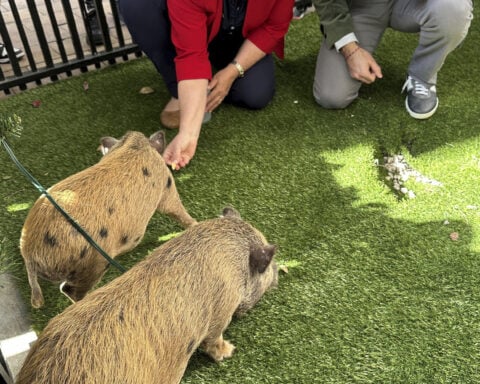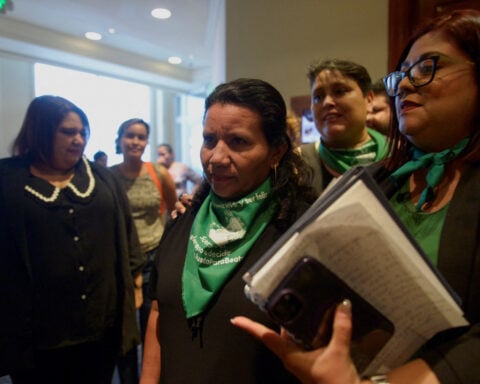(CNN) — In the week since Helene pummeled western North Carolina, many people have offered a glimpse of hope to displaced residents.
They have deployed mules with supplies to places isolated by the damage. They have given shelter to dozens of stranded residents. And they have found alternative ways to distribute food after losing everything.
While hundreds of first responders and National Guard troops have been deployed to Asheville and nearby communities to help with the anticipated long recovery from Helene, here’s how both neighbors and strangers are supporting each other:
He opened his 100-year-old lodge to people seeking shelter
Hoyt Johnson turned his lodge in North Carolina’s Little Switzerland, an unincorporated village perched high in the mountains about 30 miles northeast of Asheville, into a shelter. The 42-room Big Lynn Lodge became a safe haven for dozens of stranded residents and travelers after the storm.
“I’m doing what I can do for people,” said Johnson, who has owned the 100-year-old lodge for 14 years. He said many of his neighbors and his staff have lost everything. “I never, ever would imagine that something like this would happen.”
The lodge has hot water, Johnson said, and while it doesn’t have power, helicopters have delivered a generator, water, food, diapers and medical supplies. He’s designated eight rooms for use of their showers, a first aid station, a charging station for cellphones and has started to cook hundreds of hot meals.
“There’s no greed here, no panic. Everybody’s just working together,” Johnson said.
He is carrying food and searching for survivors in his kayak
Mason Hargrove said he has been paddling through powerful rapids in North Carolina’s Green River to reach people trapped by mudslides. The Green River, located about 30 miles southeast of Asheville, is known for its extremely difficult and violent rapids.
“There was no way to get in there other than the river or via helicopter,” said Hargrove, a a freestyle kayaking champion.
Along with friends who also practice kayaking, Hargrove has taken supplies down the Green River, searched for survivors in the debris and hiked through steep and muddy mountains, carrying produce, gasoline and propane.
“As professional kayakers, we really can assess the risk and assess what is feasible and what’s not feasible, depending on the mission that we’re on for that day and what’s the goal,” Hargrove said. “Because at the end of the day, we’re going to do as much as we can to help these people out, but also keep ourselves safe so we don’t add to the problem”
Hargrove said he’s met people whose houses were hit by landslides or who fled flooded homes. In these cases, he said, he has tried to get them medical assistance or help them “find a way to continue with life.”
“I love people and want to help people. It hurts me to see people hurting, and so I want to do as much as I can just to give back to the community that has given so much to me,” Hargrove said. “Western North Carolina has a really special place in my heart, even though I’m not from here. This is my second home, and it’s what I was called to do.”
The storm destroyed their food bank, but they keep helping others
The headquarters of the MANNA FoodBank in Asheville were destroyed by flooding. The non-profit lost all its food supply and equipment, said CEO Claire Neal. But within days, the staff switched gears to find donations and set up a new distribution location at the city’s farmers’ market.
“People have come together in unprecedented ways to support their neighbors,” Neal said. “I’ve have always loved western North Carolina (because) this is a community that takes care of each other, that cares about each other, and we’ve seen that in spades. We’ve seen neighbors checking on neighbors, whole neighborhoods coming together to feed each other.”
Neal said her team is encouraging donations of “shelf-stable” food, diapers, water and other supplies to help “families take care of themselves.”
Mules are hauling supplies to victims
Packs of mules are trekking through treacherous roadways and high into the mountains of North Carolina to deliver supplies to residents devastated by Helene.
They have delivered insulin, ice to keep medicines cool, food and other supplies like tarps, batteries and lights, the Mountain Mule Packer Ranch said in a series of posts to Facebook this week.
Mike Toberer told the Associated Press he decided to bring a dozen of his mules from the ranch about 110 miles east of Charlotte to deliver food, water and diapers to hard-to-reach mountainous areas.
“We have to remain focused on the mission we started out with, and that is getting this mule string in to as many inaccessible places possible to help all that we can in their time of need!,” the ranch wrote on Facebook, after making several trips in western North Carolina this week.
CNN’s Sara Smart and Melissa Alonso contributed to this story.
The-CNN-Wire
™ & © 2024 Cable News Network, Inc., a Warner Bros. Discovery Company. All rights reserved.

 How to save a fentanyl victim: Key facts about naloxone
How to save a fentanyl victim: Key facts about naloxone
 Eight convicted in France over murder of teacher who showed Prophet caricature
Eight convicted in France over murder of teacher who showed Prophet caricature
 Death toll from German Christmas market car-ramming rises to four, Bild reports
Death toll from German Christmas market car-ramming rises to four, Bild reports
 France's Mayotte struggles to recover as cyclone overwhelms hospitals
France's Mayotte struggles to recover as cyclone overwhelms hospitals
 Russia's UK embassy denounces G7 loans to Ukraine as 'fraudulent scheme'
Russia's UK embassy denounces G7 loans to Ukraine as 'fraudulent scheme'
 Pope calls Gaza airstrikes 'cruelty' after Israeli minister's criticism
Pope calls Gaza airstrikes 'cruelty' after Israeli minister's criticism
 Retailer Party City files for bankruptcy, will wind down 700 stores
Retailer Party City files for bankruptcy, will wind down 700 stores
 Soccer's top players have had enough, as FIFA's new super-sized tournament sparks a revolt
Soccer's top players have had enough, as FIFA's new super-sized tournament sparks a revolt
 Lindsey Vonn finishes 14th in a super-G to mark her return to World Cup skiing at age 40
Lindsey Vonn finishes 14th in a super-G to mark her return to World Cup skiing at age 40
 Santa and Mrs. Claus use military transports to bring Christmas to an Alaska Native village
Santa and Mrs. Claus use military transports to bring Christmas to an Alaska Native village
 Courtesy Mason Hargrove via CNN Newsource
Courtesy Mason Hargrove via CNN Newsource







